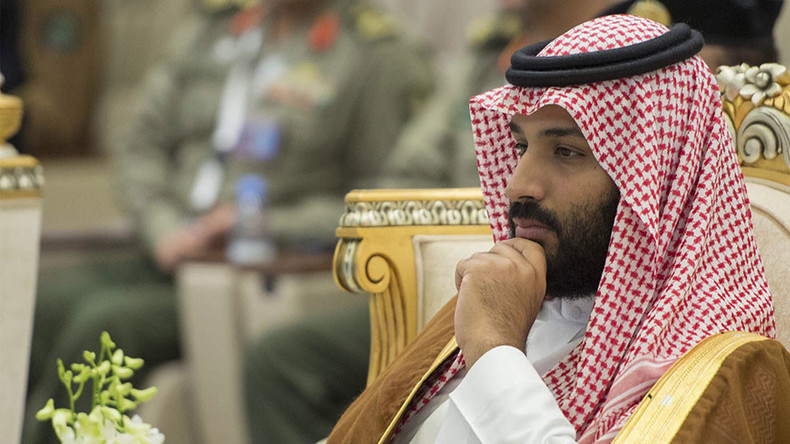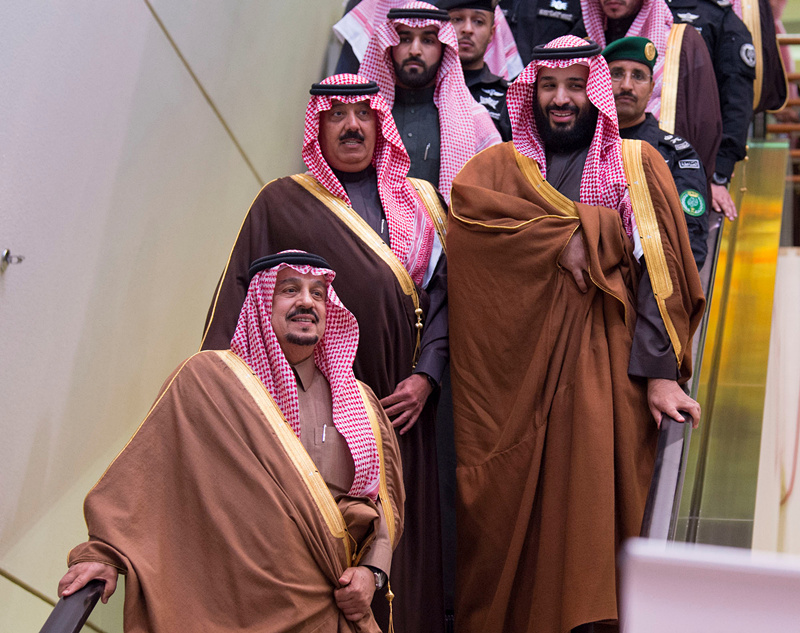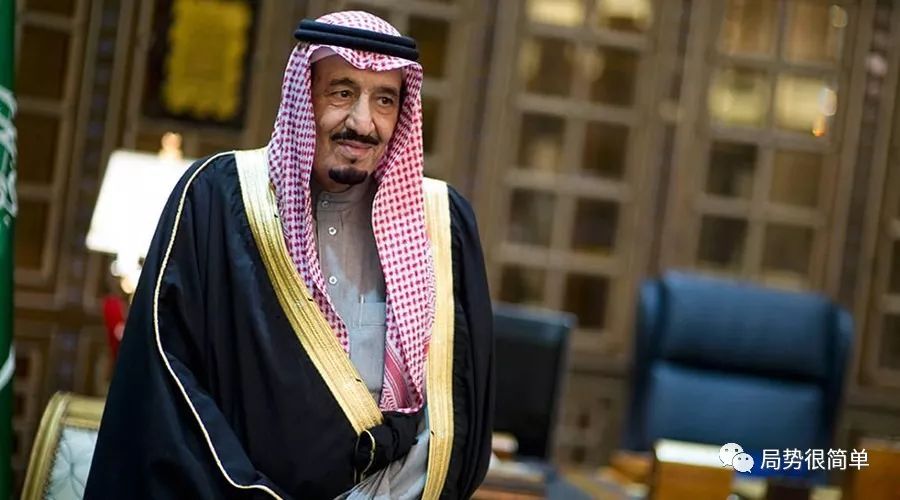Recently Saudi authorities detained 11 princes after they gathered at the royal palace in Riyadh in a rare protest against austerity measures that included suspending payment of their utility bills, Saudi media reported on Saturday.

Reuters photo
Government information service, the Centre for International Communication, said it was checking the report.
Saudi Arabia, the world's top oil exporter, has introduced reforms that included cutting subsidies, introducing value added tax and cutting perks to royal family members to try to cope with a drop in crude prices that has caused a budget deficit estimated at 195 billion riyals in 2018.

Saudi Arabia's Crown Prince Mohammed Bin Salman and Saudi Prince Miteb bin Abdullah take part in the Annual Horse Race ceremony, in Riyadh, Saudi Arabia, December 30, 2017. (File photo: Reuters photo)
1. Why are there more than 2,000 princes in Saudi Arabia?
The House of Saud is the ruling royal family of Saudi Arabia. The most influential member of the royal family is the King of Saudi Arabia, King Salman, who holds absolute power over political decisions in the kingdom.
Saudi royalty is originally descended from the original founder of the first Saudi state, Muhammad bin Saud. There are estimated to be 15,000 living members of the Saudi royal family stemming from the modern founder of the kingdom King Abdul-Aziz (1876-1953), known as Ibn Saud. The majority of the power and wealth is consolidated among roughly 2,000 members. These family members fill a number of roles throughout the government and are appointed by the king.
Ibn Saud established the Kingdom of Saudi Arabia in 1932. As head of a polygamous household and allegedly had 22 wives to cement alliances with other clans, though reportedly never more than four wives at a time. They bore him over a hundred children, including 45 sons of whom 36 survived to adulthood and had children of their own. Today, the late king has more than 1,000 grandsons who intermarry within the dynasty to re-establish their lineage and status within the ruling clan.
2. Why do some kings of Saudi Arabia assume a position at a senior age?

File photo: Jing Salman
Succession within the Saud family has been unconventional for monarchs. Although the first king of the modern state of Saudi Arabia Ibn Saud was succeeded by his son, the next five leaders were all brothers. As a result, the relative age of each king has increased, with Jing Salman, assuming the role at 79.
(Reuters contributed to the story)


